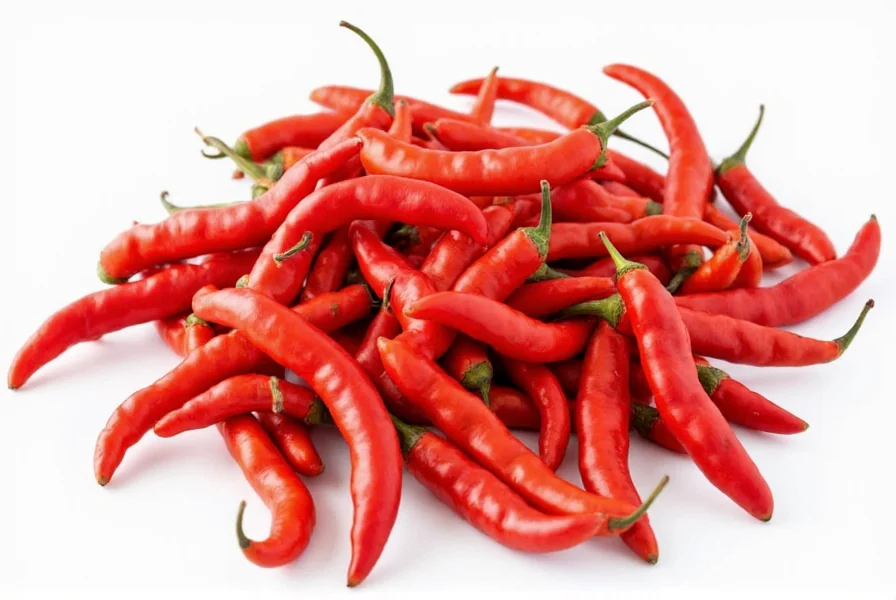| Primary Benefit | Scientific Support Level | Key Applications |
|---|---|---|
| Pain Management | High (FDA-approved topical) | Arthritis, neuropathy, muscle soreness |
| Metabolic Support | Moderate | Temporary metabolism boost, appetite regulation |
| Circulation Improvement | Moderate-High | Peripheral circulation, cardiovascular support |
| Digestive Health | Moderate | Digestive enzyme stimulation, ulcer prevention |
| Anti-inflammatory Effects | Moderate | Chronic inflammation reduction |
The Science Behind Cayenne Pepper Benefits
Capsaicin, cayenne pepper's active component, interacts with TRPV1 receptors in the body - part of our sensory nervous system that detects heat and pain. This interaction initially causes the familiar burning sensation but ultimately leads to desensitization of pain pathways. Research published in the Journal of Clinical Rheumatology confirms that topical capsaicin creams (0.075% concentration) significantly reduce osteoarthritis pain when used consistently for four weeks.
For digestive health, cayenne stimulates digestive enzyme production without increasing stomach acid. A 2022 review in Nutrients found that moderate cayenne consumption may protect against stomach ulcers by enhancing mucosal defense mechanisms. This counters the common misconception that spicy foods harm the digestive tract.

Metabolic and Weight Management Effects
Studies indicate cayenne pepper can temporarily increase metabolic rate by 4-5% through thermogenesis. Research from Purdue University demonstrated that participants who consumed cayenne with meals reported greater feelings of fullness and reduced subsequent calorie intake. However, these effects appear most pronounced in individuals not habituated to spicy foods.
The metabolic boost from cayenne pepper what is good for weight management is modest but meaningful as part of comprehensive lifestyle approach. It's not a magic solution for weight loss, but can complement dietary efforts when used consistently alongside other healthy habits.
Safe Usage Guidelines
When incorporating cayenne pepper for health benefits, consider these evidence-based recommendations:
- Topical application: Use FDA-approved capsaicin creams (0.025%-0.1%) for pain relief, applying 3-4 times daily
- Internal consumption: Start with 30-120mg daily (about 1/8-1/4 teaspoon) and gradually increase to 300-500mg
- Timing: Consume with food to minimize gastrointestinal discomfort
- Duration: Most studies show benefits with consistent use over 4-8 weeks
People with gastrointestinal conditions like GERD or ulcers should consult healthcare providers before regular consumption. Those taking blood thinners should exercise caution as cayenne may enhance anticoagulant effects.

Limitations and Research Gaps
While cayenne pepper health benefits show promise, research has limitations. Many studies use concentrated capsaicin rather than whole cayenne pepper. Long-term effects of regular consumption remain understudied. Most evidence supports short-term symptom relief rather than disease modification.
The question of what is cayenne pepper good for must be framed realistically - it's a supportive therapy, not a primary treatment for serious medical conditions. Quality human trials remain limited compared to preliminary laboratory research.
Practical Integration into Daily Routine
Incorporating cayenne pepper what is good for your health can be simple:
- Add 1/8 teaspoon to morning lemon water
- Include in spice blends for roasted vegetables
- Mix with honey for sore throat relief
- Use in homemade salad dressings
- Try cayenne-infused bone broth for digestion
Consistency matters more than quantity when seeking cayenne pepper benefits. Small regular doses provide more sustainable effects than occasional large servings that might cause discomfort.
Frequently Asked Questions
What specific conditions is cayenne pepper most effective for?
Cayenne pepper shows strongest evidence for topical pain relief in osteoarthritis and neuropathic pain conditions. The FDA has approved capsaicin creams for these uses. For internal consumption, research supports benefits for temporary metabolic boost and digestive stimulation, though effects are more modest than pharmaceutical interventions.
How long does it take to experience cayenne pepper benefits?
Topical pain relief typically requires consistent application for 1-2 weeks to notice significant improvement. Metabolic effects may be noticeable within hours of consumption but require regular use for sustained benefits. Digestive improvements often appear within days of regular moderate consumption. Full therapeutic effects generally develop over 4-8 weeks of consistent use.
Can cayenne pepper interact with medications?
Yes, cayenne pepper may interact with blood thinners like warfarin by potentially enhancing their effects. It might also affect blood sugar medications and ACE inhibitors. If you take prescription medications, particularly for cardiovascular conditions or diabetes, consult your healthcare provider before regular cayenne consumption. The capsaicin in cayenne can affect how your body processes certain drugs.
Is cayenne pepper safe for daily consumption?
For most healthy adults, moderate daily consumption of cayenne pepper (up to 1,200mg capsaicin equivalent) is considered safe. Start with small amounts (30-120mg) and gradually increase to assess tolerance. Discontinue use if you experience persistent gastrointestinal discomfort, heartburn, or other adverse reactions. People with gastrointestinal conditions should consult healthcare providers before regular use.
What's the difference between cayenne pepper and regular chili peppers for health benefits?
Cayenne pepper typically contains higher concentrations of capsaicin (12-15%) compared to many common chili peppers. This makes it more potent for therapeutic applications. While all chili peppers offer some health benefits, cayenne's standardized capsaicin content provides more consistent effects for pain relief and metabolic support. However, individual tolerance varies, and some people may find milder peppers more sustainable for daily consumption.











 浙公网安备
33010002000092号
浙公网安备
33010002000092号 浙B2-20120091-4
浙B2-20120091-4